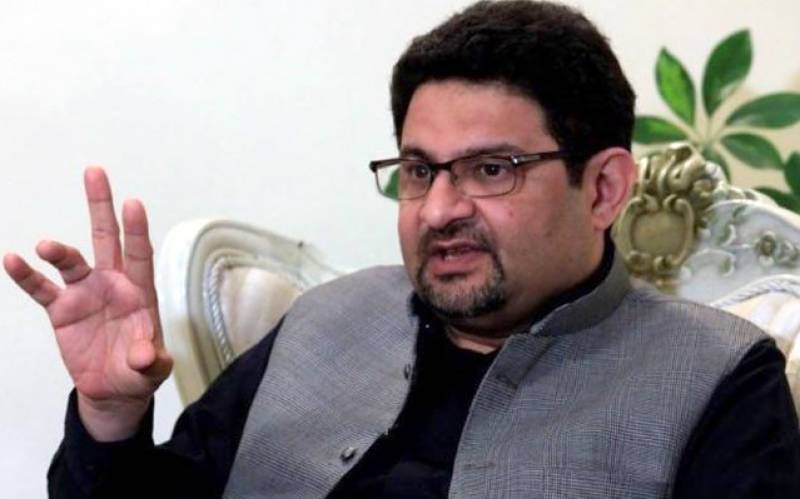Islamabad (Web Desk): Finance Minister Miftah Ismail on Tuesday defended the federal government's decision to hike the price of petrol after backlash from Pakistan Muslim League-Nawaz (PML-N) supremo Nawaz Sharif and a strong coalition partner Pakistan Peoples Party (PPP) co-chairman Asif Ali Zardari.
Addressing a news conference in Islamabad, the minister said that he never claimed the price of petrol will not increase, rather that the taxes will not be imposed on petroleum products.
"I stand behind every decision of the government with full responsibility," the finance minister said, noting that no economic decision was taken without his input.
Miftah Ismail said the economy is improving and the government's next target is to control inflation.
The minister said that rupee has been performing as best currency of the world following continuous appreciation against dollar for first 15 days of August. Earlier, US Dollar had gone out of control after July 17 and reached to Rs239 exchange rate.
Criticizing the economic policies of the former Pakistan Tehreek-e-Insaf (PTI) government, the Finance Minister said they left behind $10.3 billion in foreign reserves and we have to return loan of $21 billion during the current fiscal year.
Miftah said that at the time when rupee was depreciating in July he had argued that there was need to control imports and bring it to the level of exports plus remittances to strike balance.
The minister said that the imports were recorded at $.80 billion during the fiscal year 2021-22 whereas the exports stood $ 31.7 billion, bringing trade deficit to $48.3 billion.
During the year, the remittances were recorded at $30 billion. Consequently, the current account deficit (CAD), he said, was recorded at $17.5 last year despite the fact had PTI was specially focusing to bring it down.
He said that PTI had singularly focused on CAD and was not realizing the measures taken by Pakistan Muslim League government for improving growth rate, infrastructure improvements, building energy and communication.
Miftah deplored that during its 4 years turn, PTI government took around Rs19,300 billion debt which is around 79 percent of total debt taken in 71 years.
He said, PTI gave $17.5 billion CAD, 1500 billion electricity circular debt, Rs.1400 gas circular debt, Rs200 billion losses in Sui Northern gas and left just 10.3 reserves at a time when the country was liable to pay $21 billion debt in 2022-23, $3 billion in June-July.
The minister question what real freedom the PTI has been talking about when there is $48 billion trade deficit while the PTI government was providing subsidy on fuel, giving amnesty to friends and bring defaults.
"It was not only PTI, last government did the same citing 8.1 percent deficit in Musharraf regime," Miftah Ismail said.
He said, that the incumbent government curbed imports including non-essential and luxury goods and then vehicles, air-conditioners, fridges, and locally assembly products that needed 90 percent imports.
He said the government was monitoring imports, exports and remittances adding that so far there had been $3.4 billion outflows and $4.1 billion outflows during the month of August. So more dollars are coming in than coming out, he added.
The minister said, imports reduced by 20 compared to last year while exports increased by 5 percent compared to last year.
Miftah Ismail said that a new letter of intent sent by the International Monetary Fund (IMF) will be signed by him today.
He was confident that disbursements to Pakistan will start following the IMF's board meeting by the end of this month.
Responding to another question regarding PPP co-chairman Asif Ali Zardari's criticism over the increase in petrol price, Miftah Said said that he respects the PPP leadership and would address their reservations over the decision.
Earlier in a statement, Asif Ali Zardari criticised the government for increasing the prices despite a massive appreciation in rupee value and a decline in international oil prices.
Expressing concern over the development, the former president said that the PPP is a part of the government and supports it, but there must be consultations on such decisions.


